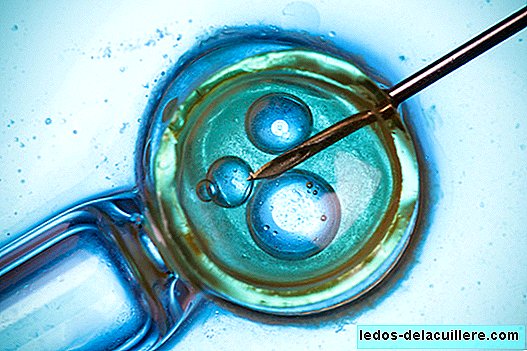
One of the strategies that pharmaceutical companies have to continue growing and selling products is to address not only people with any medical condition or disease, but also to those who are healthy. In this way they have managed to make us believe, over the years, that vitamins help us to prevent diseases or to recover health when we fall ill, and in the same way, that pregnant women need them so that their babies are properly formed and Be healthy at birth.
However, the evidence is clear. A recent study has analyzed the available evidence and has concluded that Multivitamins for pregnant women are a business that makes women waste their money, because they should only take supplements if they have any specific deficiency.
Eat healthily
The study has been published in the journal Drug and Therapeutics Bulletin and the authors recommend that pregnant women who want to have a healthy pregnancy and want to do their best for their baby lead a healthy diet.
This recommendation, in fact, is the same that would be made to a teenager who asked how to be in good health, to a woman who expresses her desire to become pregnant, to a pregnant woman, to a woman who is breastfeeding a baby and one who He has children but does not breastfeed: eat a healthy diet.
It seems obvious, but many people don't consider it that way. Some people still think that pregnant women and nursing mothers are in a delicate situation and that they have to be very careful about what they eat or stop eating, and even that they have to force themselves to eat things that they don't even like, because The good of your children. But the reality is the same as always: they are recommended to eat well, like the rest of humanity, because It is the advice that everyone should follow, for your health.
And if there are deficiencies?
The fact is that many women, even when they are already eating well, are still afraid of missing some vitamin or mineral and end up falling into the trap of buying a multivitamin to take throughout the pregnancy, with the expense involved, which can become 15 to 20 euros per month. There are even those who recommend it because "even if you eat healthy, you make sure that you don't lack anything".
The reality is that, in case of deficiencies or deficit of nutrients or minerals it is necessary to supplement, since these deficiencies can be a problem in the formation of the fetus. However, the logical and advisable thing is that the woman take only the supplement that requires, and not a bit of everything just in case.
And it is that an excess of vitamin A, for example, can affect the development of the fetus, just as an excess of folic acid could increase the risk of autism (this is still unclear).
There is no evidence to support the use of multivitamins
As we read in Medscape, researchers point out the need to supplement the diet with 400 micrograms folic acid every day from before conception until the 12th week of pregnancy to avoid neural tube defects, which will be 5 milligrams of folic acid per day if there is a family history of neural tube defects, if the mother has diabetes or has had a baby anterior with a neural tube defect.

In addition, depending on the area of residence of the pregnant woman, it may be advisable to supplement with vitamin D, as recommended by the NHS in the United Kingdom, which states that a dose of 10 micrograms daily can guarantee proper bone and dental health:
We do not find evidence to recommend that all pregnant women take supplements of multiple vitamins and minerals in the prenatal stage, beyond the folic acid and vitamin D supplements recommended nationwide, whose generic versions can be purchased at a relatively economical cost (… ) In most women who are planning to get pregnant or who are pregnant, complex multivitamin and mineral preparations that are promoted for use during pregnancy are unlikely or necessary.
Add, as a curiosity, that the Health Supplements Information Service, which is funded by pharmaceutical companies, has made statements upon learning of the publication of this study emphasizing that such analysis "will only create confusion in pregnant women and deter a greater number of them to improve their intake of vitamins and minerals. " But this is logical ... how are they going to defend that each woman take only the supplement she needs, whose price is relatively cheap, when you can spend a lot more money taking things you don't need?
Photos | iStock
In Babies and more | Folic acid in pregnancy: why it is important ?, What we should know about iron and folic acid supplements in pregnancy, Tips to prevent birth defects in the baby












